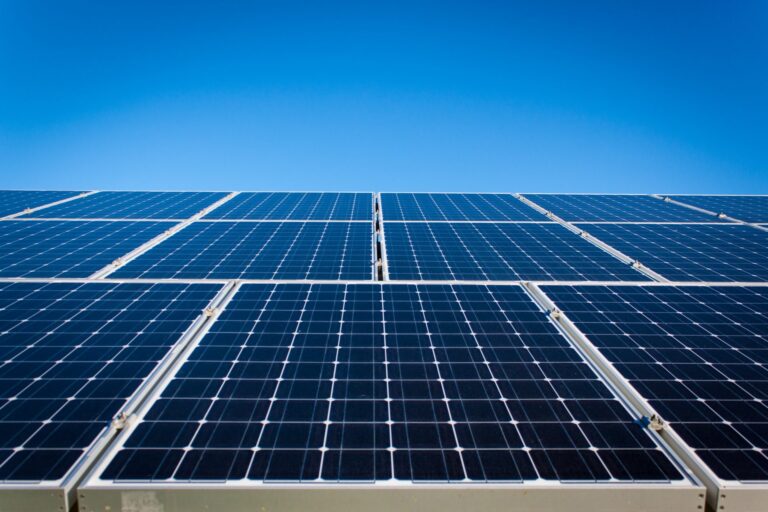As the world shifts towards renewable energy, solar power stands as a key solution, especially for resource-rich countries like Nigeria. However, despite Nigeria’s vast solar potential and increasing demand for energy alternatives, its local solar manufacturing industry remains underdeveloped. The main issue lies in a policy contradiction: while fully assembled solar panels can be imported duty-free, the essential raw materials needed to produce these panels locally are burdened with significant import duties.
This policy imbalance not only hampers the growth of local manufacturers but also undermines Nigeria’s industrialization ambitions and efforts toward energy independence. If Nigeria is serious about embracing a greener future, driving economic growth through industrialization, and creating meaningful jobs, it must eliminate import duties on solar panel raw materials.
A Tilted Playing Field: The Market Disadvantage
Local manufacturers are faced with a difficult reality. They pay import duties on critical raw materials such as photovoltaic (PV) cells, aluminum frames, tempered glass, and more, while foreign competitors can import fully assembled solar panels without these additional costs. This creates a distorted market and penalizes local manufacturing, discouraging investment and stalling the growth of a robust solar panel industry.
“It’s like running a race with your shoelaces tied,” said Adeniyi Ojo, a Lagos-based solar panel retailer, reflecting the frustration felt by local businesses. Companies like LPV Technologies, Nigeria’s largest solar panel manufacturer, are directly impacted by this policy inconsistency, further limiting their potential in the rapidly expanding solar energy market.
A Barrier to Localization and Industrial Growth
Nigeria’s industrial policy has long promoted backward integration—a strategy where local production replaces imports. However, this cannot succeed when the cost of raw materials is inflated by counterproductive duties. Removing these import duties would signal that the government is serious about promoting industrial growth and aligning energy and industrial policies to foster a thriving solar manufacturing sector.
This shift is crucial for Nigeria to meet its renewable energy goals under the Sustainable Energy for All (SE4ALL) initiative and the National Renewable Energy and Energy Efficiency Policy (NREEEP). A policy that encourages local content development is essential, moving beyond rhetoric to enact practical changes that remove barriers for indigenous producers and entrepreneurs.
Cost Implications for Consumers: Making Solar More Affordable
The impact of import duties is felt most by Nigerian consumers. Due to inflated costs of locally produced solar panels, households and businesses pay more for clean energy solutions that should ideally be affordable and accessible. With over 85 million Nigerians lacking access to reliable electricity, solar power is a potential game-changer, but pricing disparities hinder widespread adoption.
By eliminating import duties, the production cost for local manufacturers would decrease significantly, making solar systems more competitively priced. This would help promote wider adoption, especially in underserved rural areas, where grid electricity is scarce or non-existent.
Creating Jobs and Building Skills
The benefits of policy reform go beyond economics. A thriving solar panel manufacturing sector could generate thousands of jobs in areas such as production, installation, distribution, maintenance, and after-sales support. By reducing input costs, companies like LPV Technologies could expand their operations and workforce, creating more opportunities for young Nigerians to enter the growing renewable energy sector.
With Nigeria’s youthful population and a growing demand for skilled labor, solar energy can offer scalable solutions to job creation and technical training. However, the current policy environment restricts this potential by making raw materials too expensive for local producers to thrive.
What Needs to Be Done: The Case for Reform
To unleash Nigeria’s solar manufacturing potential, the government must act. Key measures include:
-
Eliminating import duties on all raw materials for solar panel production.
-
Establishing a clear industrial policy with targeted incentives for local manufacturers.
-
Streamlining customs processes and reducing bureaucratic delays.
-
Providing affordable financing for solar entrepreneurs and manufacturers through development banks and green funds.
-
Promoting local content development through partnerships with technical institutions and global manufacturers.
If these reforms are implemented, companies like LPV Technologies could double production capacity and access underserved markets across Nigeria.
The Future Is Bright – If We Make the Right Policy Choices
Nigeria is at a pivotal moment. As the global shift towards clean energy continues, countries that adapt early will gain the benefits of industrial growth, innovation, and energy resilience. By removing import duties on solar panel raw materials, Nigeria can position itself as a leader in solar energy production and sustainability.
This policy change is not just a favor to local manufacturers—it’s a strategic move that will drive competitiveness, attract investment, empower consumers, and create green jobs. For Nigeria to build a thriving solar industry, it must stop holding back those working to make it happen.
The time for action is now. Nigeria’s energy future can be brighter—if we make the right policy choices.

